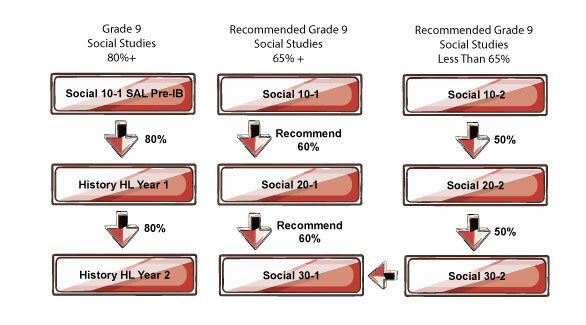3 credits
Co-requisite: Social Studies 30-1 IB
Western World History 30” with the following description This course addresses international relations from 1919 to 1945 with initial emphasis on the Paris Peace Settlement: its goals, impact and the problems relating to its enforcement. The section covers attempts to promote collective security and international cooperation through the League of Nations and multilateral agreements (outside the League mechanism), arms reduction and the pursuit of foreign policy goals without resort to violence. This section also addresses the individual foreign policies of Japan, Italy, Germany, France, Britain and Russia/Soviet Union, looking at the aims, issues and success of each one. It concludes with a study of the Second World War, looking particularly at the impact of the war and the reasons for German defeat and Allied victory.


